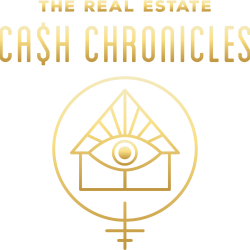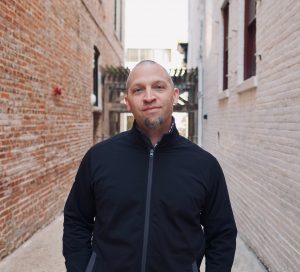Patrick (00:00):
This episode of Cash Chronicles, we’re going to meet Doug Maners who made $20,000 on one wholesale deal that took him less than a day’s worth of time.
Voiceover (00:14):
Welcome to this week’s episode of The Real Estate Cash Chronicles, where we speak with real investors from around the country to break down individual deals. They’ve completed showing you the actual timeline of events that it took to make a profit making money in real estate. Isn’t a mystery, it’s a step-by-step process, but once you complete one, you’ll never think about cash the same way let’s get started.
Patrick (00:37):
Yeah, yeah. Yeah. So, Doug man thanks for joining us today. And I’m super excited about talking to you about, you know, the deal that was, you know, pivotal to your continued success. So just simply stated, man, how did you find it?
Doug (00:51):
This particular deal, I guess for simplistic purposes, we’ll call it the Duplin deal because it was located in Duplin County. So maybe that’ll help a little bit, but the Duplin deal was actually it was actually a for sale by owner. It was but it turned out to be a probate deal. They had inherited the house when their grandparents I think it was a grandmother had passed on. And so it was actually a probate deal. That was the for sale by owner.
Patrick (01:15):
Very nice. Very nice. So after you put two and two together and you found out that it was a probate, it was a for sale by owner. So just kind of reading in between the lines here. Did, did you just call the number on the, for sale by owner sign or what’d you do next?
Doug (01:33):
Yeah, it, it was actually what an office sign actually had. It was actually found through, you know, back, and this has been a few years back before we had access to all this data. You know, you had to do an old school. And so it was a situation where, you know, we were you know, identifying some for sale by owners or reaching out and contacting them that were advertised and their properties for sale. And so it was a situation where, you know, reached out to the motivated seller contacted them and found out a little bit about the property, obviously. And then through a series of questions, you know, it’s important to ask the right questions to a seller, obviously. I was able to determine that the house was inherited and that also determined that there was no mortgage on the house, which is important piece to know.
Doug (02:20):
And so that’s always helpful. They kind of know that you know, what they owe when you want to formulate an offer. And so, yeah, it was a, it was you know, as soon as a series of questions, the, a seller you know, disclose a number of different things to me. And the interesting thing about this property Patrick, was that it actually was a, to a total of 2.4, three acres. So the house set on some acres and then, you know, on, on a larger parcel. And anyway, so that that’s good. You’ll see, in a minute when we, I, you know, that, how that came into play, it made it turn into a really good deal.
Patrick (02:53):
Okay. Sweet, sweet, sweet. So I like what I hear so far, so you’re able to make contact with them and let’s, let’s dig into that a little bit. So you made contact and you said you, you, you asked the right questions. Can you share a few of those right questions?
Doug (03:10):
Well, yeah, I mean, absolutely. I, you know, it’s very helpful. You know, when you’re talking to a motivated seller, it’s important to have obviously, you know, criteria in front of you, you, it’s good to have maybe a form or format that you can literally walk a seller through to ask the questions that you need to, you know, important information that you need to know. For instance, you know, a good question may be, you know, Hey, do you owe anything on the property? Sometimes they’ll disclose that sometimes they won’t in this case they disclosed, no, we don’t own anything else, an inherited property. Well, then I knew it was a, you know, a probate situation where the person had inherited the property. Now, obviously the next question you want to ask about that is, do you own it outright? And now, you know, has it been through, you know, clear that, you know, the probate process you know, you own the property, is it, has it been deeded to you and so forth which it had, yes, they, they own the property outright so they can move forward.
Doug (04:02):
So, you know, obviously once you find out the situation with the seller, there may be follow up questions. You need to ask to make sure that they’re in control of that property now, because as you know, Patrick, sometimes you can get into some legal things where the judge may be making some decisions. I mean, you know what I’m talking about? I, it could be a, there’s all the things that can happen. So you want to, you know, just ask them point blank. Most people will be straight up with you and let you know whether or not that they have, you know, ownership and or control of that property, which they did. And so then I proceed to ask him more detailed, specific to the property. So you want to know, you know, you know, tell me a little bit about the house, how many bedrooms, baths, square footage what kind of condition is the house in?
Doug (04:41):
When was the last updates done? I’m going kind of fast, but you get the idea. I hadn’t done it. I’ve only done it once a month. Now I’ve done it a few times. Right. But then, you know, a really important question that I think a lot of investors forget ask is how much the land is with the property. Now, this was important in this case. Because then he said, Oh, it’s a, it’s on 2.4, three acres. Well I tell you, I’ve been able to successfully negotiate a number of real estate deals in wholesale deals just happened to be a wholesale deal that because it had additional land immediately in your mind, you’re thinking subdivide. In fact, a couple of big is wholesale deals. This one included where I made a substantial wholesale fee was properties that could be subdivided in both cases. The seller did not know that. And so there’s a tip for you, absolutely. For you guys as there’s a nugget. So always do your research. Can the property be subdivided? Does it meet the zoning criteria? And now all of a sudden there’s a whole new Avenue of value that’s added to that property.
Patrick (05:42):
All right. So I love everything I hear so far. And thanks for being so open and sharing so fluid with us, Doug, and look just quick interjection to all of our Connected Investors, family, and listeners, they look and make sure you go and find the notes for this podcast. Obviously, it’s going to be packed with probate information. I can get a little sticky, it can get a little tricky, but being a member of the connected investors community is going to make it a lot easier. Hey, look, that’s what we’re here for your success. Our success it’s mutual. It’s mutual together. Okay. So you, you you’ve given us some good questions. You’ve, you’ve, you’ve kind of unwrapped the candy bar. So, so tell me about the deal. Tell me what you got on paper, what that looked like. Maybe the number, the timeframe. So let’s, let’s continue to go with that a little bit, Doug. Yeah,
Doug (06:33):
Absolutely. Absolutely. Yeah. So, you know, after some additional questions and things that, you know, obviously talking with the seller, finding out about the property, that condition, the location, you know, all these different factors. One other quick question, I’ll just throw out there. Patrick, before I get into the numbers, is, do you have any other interest in the property or do you have any other offers on the property? You know, that’s the key question to ask in this case, they said, no, they had no other offers. Well, what that does is immediately opens up for you to be able to say, Hey, now, Hey, I’m the only player. So now that’s going to affect how I negotiate. Now, if they say, well, yeah, I’ve had three other offers. Well, my follow-up question will be, Hey, would you mind telling me what they offered you?
Commercial (07:11):
The Connected Investors app connects you with investors notifies you of available properties, helps locate cash buyers get secure private funding to close deals, set up in seconds to become a member of the Connected Investors, social network. Now you can scroll through your main feed to find cash buyers seen investment properties, not available to the general public and network with investors by adding your own comments to a thread, to keep the conversation going. The control center is your connection to add properties, to sell, start new discussions, connect with local investors and even find private funding. The notifications tab will keep you alerted to new investment properties and offers. You’ll also find new friend requests to connect directly with the community to build your network from the property marketplace. You’ll be able to find favorite and make offers on investment properties, download Connected Investors today to find, figure, fund and flip investment properties on the go.
Doug (08:13):
Sometimes the seller would tell you, Oh, well, one of them offered me 61 on for me, 80. And sometimes they’ll just blurt it out. You just want to get as much information as they can. Now, sometimes sellers won’t do that. They’ll say, well, you know, I’d rather not say well, it’s okay. Not a problem. I just was curious, you know? And so needless to say, in this case, they didn’t have any other offers, no other answers at that point. Now one advantage of that is I, you know, obviously I jumped on this. I had, you know contacted them as soon as I had seen this particular you know, listing that they had put out or advertisement, I guess I should say. And so you know, I was the first, you know, first, first player in the game, so that, that always helps.
Doug (08:50):
And so needless to say we negotiated a little bit and tell me what he wanted for the property, knowing that they didn’t know anything on the property. I knew there was probably some room there for negotiation. And we actually settled on an amount of $57,000 for the property, which in that location, I knew the ARV just knowing that area. I knew the ARV of that property was beautifully remodeled and, and maintain would be somewhere in the $120,000 range, especially with that much land, even without that much land I knew it would be. And so, you know, I kind of, you know, at 57,000, I knew there was an opportunity there to generate some profits. So that’s, that’s kind of the amount we set it on was 57,000. I didn’t offer them any earnest money that, you know, usually if you don’t bring up earnest money, many times a motivated settle like that, that’s a, that’s a probate property, you know, they’re not gonna, they’re not going to say anything. Sometimes they will, but in this case I didn’t offer nearest money. I just say, I’m willing to go ahead and put together the contract. We’ll get that signed and we’ll get moving forward to settling, you know, sailing for you. Now, the other question you asked was about timing, is that right?
Patrick (09:54):
Oh, well, you know, what if I did, that was going to be where I was heading. So I’m glad to hear about the economic details and yeah. Timing. I mean, how long did it take for, for you to go from communication to having that contract signed? So yeah, a little bit of, about that a little bit.
Doug (10:12):
Sure. No, absolutely. One thing you got to consider is being the first game, the first one in the game. So to speak the first one to make an offer is you don’t want to drag your feet on that. You want to go ahead. You know, fortunately I already kind of knew the numbers for that area. So I was able to formulate an offer based on what I was told, but I also went out and looked at the property, I’ll walk the property. So you know, I, you know, we negotiated right up front on the phone on a price on it, but I said, Hey, let me do this. I want to go back and get a good look at the property now as a wholesaler. Is it critical to look at that property? Yes and no. Okay. Now, if you’re remote, if you’re wholesaling remotely and you can’t get there, guess why you don’t have a choice, but you’re going to have to put it under contract based on the factors that, you know, and that’s okay.
Doug (10:56):
Nothing wrong with that. But because I was close enough to this property that could drive out and look at it, I decided to go out and take a look at it. And I said, okay. Yeah. And so we, when we talked about the 57,000, I I’ll tell you what, let me go take a look at it. I’m going to ride out there today. I’ll look at it. And you know, if it’s exactly the condition that you told me, I’ll go ahead and put an offer together. We’ll meet up and get that sign. So I wanted to go in and attack this thing and get it done right now. But I wanted to lay eyes on just to make sure that seller was telling me the truth about the condition. So in this case does exactly what I did. I drove out that day.
Doug (11:27):
I looked at the property they, they were very honest about the condition. And so I also wanted to look at the surrounding properties. What’s around the area. You always want to look at the neighborhood in this case, it was a rural property. So not, but you know, is it in North Carolina? Is it next to a home farm Duplin County? That’s the first thing in your mind, you, if you’ve got a hog farm in the backyard, that’s gonna affect the value of that property. Fortunately, this one was rule, but it was a very nice rule. It was well well-kept farms, well kept land out there. And I wanted to look at the, you know, being 2.4, three acres immediately. My antenna went up to say, Hey, what can be done with this? Can it be subdivided? So my next thought, obviously, you know, you want to go in, you want to take a look at the zoning for that particular parcel.
Doug (12:16):
All this can be found typically on the County websites nowadays, or if you’ve got a really good data provider, they can get you that information as well that you, you may be subscribed to which is very valuable by the way. But that being said in this case, I saw that, you know, the surrounding land looked like it could be supportive of a potentially another build. And that was the reason I looked at that because now you’ve got, instead of one investment property, you’ve got two investment properties, one with the house, with the lot on the house. And one with the land you know, adjacent that could potentially support a second house. And so that was kind of my thinking there, and obviously adds great value when you can formulate a deal like that. So anyway, I put the property under contract that day, I met with them that evening.
Doug (13:02):
We got the property under contract, and then I made sure I set aside, you know, usually I try to go at least four weeks of due diligence, as much as they’ll let me and in about eight weeks to closing sometimes with the opportunity to do it shorter, you know, I obviously, if I wanted to, in this case, I was going to wholesale this deal. I want to be able to have time to identify a particular, you know, an investor buyer for it. So that gives me at least four weeks of due diligence time. But in this case they really didn’t even require a due diligence fee. They didn’t do any of that. I didn’t have to worry about it. So I just, I put myself some time out there that I could do that. And then an additional four weeks to close it, but we actually ended up closing it sooner than eight weeks. But yeah, just to give me an idea of timetable,
Patrick (13:47):
Look, Doug, you are on fire and supplying me and our listeners with tons of awesome information. Let me just interject a quick few things. One would be something Doug said that, that I want to expand on just a little bit is when you have the opportunity, you won’t always, but when you have the opportunity to go look and walk the property, like Doug mentioned, it’s going to give you a new level of legitimacy. And then, and then when the buyer, I mean, I’m sorry, when the seller is asking, you know, why or when or who, or how are you going to walk the property align that I’ve heard it successful before to continue to legitimize is, you know, I just want to make sure that I walk that property so that I can make you the best offer possible. So, so I’ve found that to be a very valuable phrase in my experience. And then the other thing is, so tell me about this subdividing. I mean, well, I tell you what, before you jump in there looking for some cash
Commercial (14:52):
For your next flipper rental, just visit private lenders.com, get matched with hundreds of verified lenders from around the country. We’re looking to help you with your next real estate deal.
Patrick (15:06):
But that’s where we’re going. Is Doug had mentioned something about data provider hello, Connected Investors, Hey, make sure you’re using what, what we offer and all the options and simple orientations that are gonna make your life easier. So now that all that being said, thanks again, Doug. Generally about how the details of the subdividing, I mean, so you’ve got the whole thing under contract, the dwelling and the 2.4, three acres, but your going to intend to subdivide it and then sell it, or you’re looking for that end investor who you’re going to just apply them with the information of, Hey, look, you could subdivide this, this, tell me more about that,
Doug (15:59):
You know, and you do bring something up here, Patrick, that, yeah, you could go either way as a wholesaler, you could potentially go to the effort to subdivide a property yourself you know, in, in a range that but in this case, no, I was looking at this specific because I did have buyers that were interested in doing spec homes, spec builds. And so I already had that kind of in my back pocket that I knew that if the land could support it then I had a buyers that would be interested in not only buying the house and remodeling and selling it but also going ahead and you know, building on the additional parcel. So as a wholesaler, the more legwork you can do upfront is your time allows that sometimes you don’t have time to do all this and that’s okay.
Doug (16:44):
You can put it out there to your buyer, let them do the legwork. But I think you stand a greater chance of making bigger money and credibility. Like you mentioned, Patrick, when you can go to them, when you’ve already looked at the property, you’ve already, you know, maybe done some due diligence yourself to determine that, yes, there’s a large enough parcel here. We can add a second property based on the zoning. In this case, it was our, a zoning rural agriculture, which you know, in those situations you have a lot of latitudes. So it was very helpful. I already kind of knew that we’d be okay, the second thing, because there was no water and sewer in this area. I knew it had to make sure that there was a per a situation where you had a soil evaluation. Now as a wholesaler, I’ve actually paid for so evaluations before you know, myself to make sure it part before I presented it to an investor.
Doug (17:26):
But in this case that it was, I was in a wind situation, the property itself, even if it didn’t per, if we couldn’t put a second house on it, it was still a desirable property. There’s still a profit to be made on it. And so I didn’t have to worry too much with regard to you know, having to make sure everything was right. So the buyer ended up doing the evaluation tasks and that before they close on it and sure enough, it, it supported it, they had a survey done and it was, it was beautiful the way it set up. So but yeah, that, that’s kind of the idea. There is if you, if you, if you don’t know who your buyers are, if you don’t know that you have a buyer that’s interested in it, presenting that buyer with that opportunity as a wholesaler could open up a new world for you, your deal deal is you go to that buyer and you’re like, Hey, you’re not, you’re not presenting them with a three bedroom, one bath home on 2.4, three acres. You’re presenting them with a three bedroom, one bath home on a half an acre with additional acre you know, that could be developed that that’s a whole different Avenue, you know? Cause they, somebody, you know, if you could make that property do a number of different things in RA, you could put mobile homes on it, you get, you know, there’s a lot of things you can do to it. Well, anyway, but yeah, hopefully that helps
Patrick (18:40):
It did it, did it. Did I appreciate it? So, okay. So how long did it take from you getting the property under contract with the seller to having, you know, your wholesale assignment assigned just quickly? How long?
Doug (18:58):
Yeah, so basically what I did is it just, you know, I’ll make this brief, but I, what I did is I actually met the buyer out there because I wanted the buyer to have my vision for what this property could be and show him my research. Just a little tip there. You can’t always meet the buyer out there. I get that. You may have to share that over the phone or whatever, or cinema, you know, email or send her a text message or whatever, letting her know, Hey, this is what, you know, this is what I foresee. What could you could do with this property? In this case, I met him out of there because I learned to give him my vision of what could be done. But anyway, that being said, so it was very quickly within that. You know, a few days I had the buyer out there, we walked the property, we walked, you know, we went in, we took a look at it. You know, and I, I arranged all that as the wholesale. You don’t always have to do that, but that’s a good idea if you can arrange it because I would rather be the one with that buyer, then have the seller meeting the buyer and they get to talk and you get the idea.
Patrick (19:53):
Yeah, I totally agree. Okay. So what was the answer to the question? How else would you need a question?
Doug (19:58):
It was, what I did is I took my assignment fee, the entire assignment fee at closing. And the reason I did that, because I knew this buyer already. I knew him well, now here’s what you want to consider. If you don’t know that buyer well then you may want to either get some of the assignment fee or all the assignment fee at the time of assignment, which we, you know, I signed it over to them in a matter of days. Okay. So you might want to get the whole fee up front, but in this case I got a substantial assignment fee. So I structured it a little bit differently. I waited and got that fee at closing. I didn’t require them to put down a deposit because I was literally working with this investor hand-in-hand. I helped them coordinate the survey. I helped them coordinate a so evaluation. I went out and found him because he was busy. This guy was a busy business person. This was when I was full-time hustle. And so I took my extra steps because I was going to make a big, you know, assignment fee on this. So I was willing to go the extra mile for this particular seller, but there’s been times I’ve gotten the whole assignment fee up front at the time of assignment. So you can structure it several different ways.
Patrick (21:01):
Nice. Okay. So meat and potatoes question here, man. So we know that you had an under offered a purchase for 57,000. How much did you assign it for?
Doug (21:15):
Okay. I signed it for 77,000, so it was a $20,000 silent fee.
Patrick (21:20):
Sweet. So you made 20 grand, so here’s the next, so 20 grand, how much time from, you know, starting with the, for sale by owner, working into that offer to purchase meeting the buyer out there, meaning the perk test people out there all the way to closing. How much time did you really have rolled up into this particular deal?
Doug (21:47):
Well, there you go. That was, it was about a six week process to get all that done because we did want to get some evaluation. We wanted to get that stuff done prior to closing, although it wouldn’t have really mattered. But my personal time involved in that couple trips out to the property, some phone calls, things like that. I mean, I may have had three or four hours. It wasn’t a lot.
Patrick (22:08):
Fantastic. So if I hear you correctly, you cleared 20 K let’s round it off and call it four hours. So you were making five grand an hour.
Doug (22:20):
Yeah. That’s, that’s basically true. Absolutely. Yep.
Patrick (22:23):
You know, I, I, I don’t, you know, Doug and real estate investing is great because you can make that chunks of cash rather quickly. Tell me about some of your long-term goals that you have reached by being a real estate investor.
Doug (22:38):
Yeah. Well, and you know, and I, I personally asking that question and one thing I’ll share, I’ll throw in a, another nugget out there for as a wholesaler, as a wholesaler. The nice thing about that is, you know, and I, and again, I was at exclusive hall, so that’s really all I’d be at, except for this back, you know, this has been a few years back, but as a wholesaler, you get first look at a property. So you get to cherry pit, the ones that you might want to do a fix and flip with. So, you know, this particular property, I didn’t want to do a fix and flip, it needed too much work. You know, it wasn’t, but let’s say you go out and you get one, that’s a cosmetic fixer. You may not want to wholesale that one. You may decide, hold on.
Doug (23:17):
I may want to go, you know, get some funding because you know, and be able to take that, get some funding for maybe a private hard money lender. And because it’s an easy fixer and do a fix and flip on that particular property instead of wholesaling it. So that’s kind of the beauty of getting out and looking at that property, then you can make that decision in this case. I didn’t want to do that. But because I did do some of those fix and flips, I kind of transitioned ultimately into doing more fix and flips. And so that barely became my bread butter. Ultimately, as my business grew out, I was able to secure a, you know, a project manager that kind of runs those for me now. So I don’t have to be there for the day-to-day operations. I just write the checks and, and help with the vision of the property.
Doug (24:00):
But but that being said, even now I still have deals that are wholesale, that I’ll flip a quick flip you know, that allow me the ability, because I may not want to fix it flip every deal. It may not. It may, maybe I get offered a deal in a County that I don’t really do a lot of business in, or maybe it’s, you know, it, my I’m too, you know, my guys, my crews too tied up on some existing projects and I don’t want to add another project right now. You know, why not monetize on those deals? That’s why you don’t have buddies that are a buy and hold investors. And I’m like, guys, why are you skipping on that deal? Just because it’s not good to put a tenant in there. Why don’t you just launch your wholesale? It’s I’m going to, I’m sure there may be a buyer if the numbers work for.
Doug (24:41):
So, you know, that’s really what it’s all about is you know, taking advantage of that. So I moved more in the fix and flip arena and still do some wholesale deals as well from time to time, because there’s always people looking for deals. No doubt about that in terms of having that. And, you know, in, in the, you know, it’s all about the numbers and, and I’ll mention, you mentioned the $20,000 and I’ll wrap up with that. You know, yeah. Why did I make 20 on that deal? Because what that investor was able to do is he was able to not only remodel the house and sell it and make a profit. So he was making somewhere around a 15 or $20,000 profit just on that one house, not to mention, then he owned the land out. Right. Cause he subdivided that out.
Doug (25:21):
Once he bought it, he owns the additional parcel, which was about 1.7 or so acres over an acre, because I think it was 2.2 0.4. Yeah. 2.4. So actually, yeah, so you get the idea and then he went on to make almost $80,000 on, on that deal. By the time he built, put a spec house on it sold it, he did very, very well. So if he, you know, he’s making, you know, 80 to 90, I want to make a large amount as a wholesale. So I made 20. Sometimes you can’t make 20 on every deal. You may only make five or 10, you know? Sure, sure, sure. So, if you were not a real estate investor, what would you be doing, man? Oh man. Well, you know, my background’s in ed the case and I taught school for a lot of years and I’d probably still be a broke school teacher. It’s an honorable profession, but I’ll tell you why, you know, when you got kids to put through college and, and you know, those kinds of things, it’s tough to survive on a teacher’s salary. So I started doing real estate part-time as a side hustle and ultimately it turned into full-time and I was making more money part-time than I was making. Full-Time
Voiceover (26:24):
Want to be like a guest on our show and make some cash in real estate. Join the center of the real estate investing universe and start connecting with free education off market deals, cash buyers, and even funding partners. Connected Investors.com has been changing the game for people around the country since 2005. So just visit Connected Investors.com forward slash cash. So you can start doing more with real estate, no matter where you are in your journey to financial freedom. Seriously, guys, if you were brand new to this and looking to close your first deal, there is not a better headstart out there to help you find properties and learn what you need to make cash. If you’re already an experienced flipper or landlord, then Connected Investors gives you access to dozens of unique inventory sources and automation that cannot be found on any other platform in the industry, Connected Investors.com forward slash cash. Go there, claim your free account, get your gift pack. And then, well, don’t look back, jump in and put that whole ecosystem to work for you because all guests of this show come directly from the Connected Investors community and would love to interview you after your first or next life-changing real estate deal.









